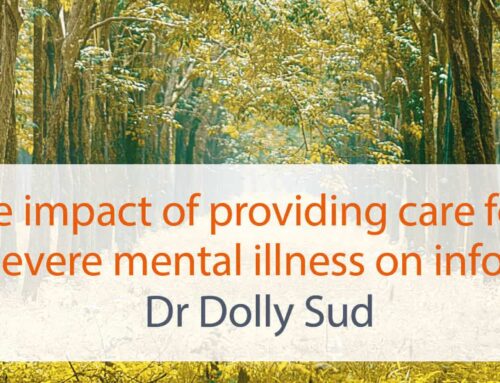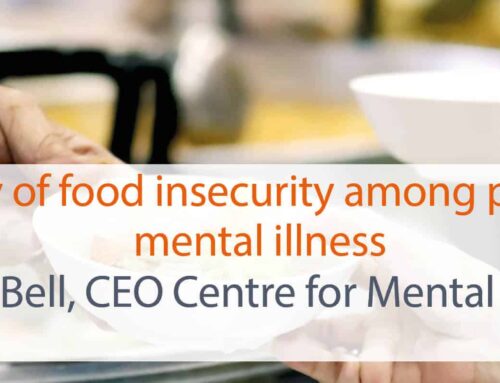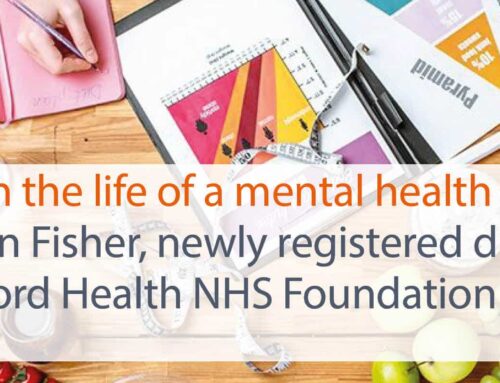
It is an uncomfortable fact that people with mental health difficulties are disproportionately affected by poor oral health (Kisely et al., 2015a). Despite this sad reality, dental care and prevention are rarely considered when addressing the physical health inequalities associated with mental illness.
A variety of lifestyle factors – poor diet, a lack of ability to maintain self-care, and higher rates of smoking and substance misuse – alongside barriers to dental access, may make those experiencing mental ill-health more vulnerable to a range of oral conditions including tooth decay, gum disease, and oral cancer. Furthermore, susceptibility to oral disease may be increased by the side effects of some psychiatric medications (Page and Somerville-Brown 2007), and certain mental health conditions may manifest in oral signs and symptoms. For example, people with eating disorders have been found five times more likely to shown signs of tooth erosion (Kisely et al., 2015b).
This inequality is amplified when we consider the far-reaching and potentially lifelong impacts of poor oral health on general health & wellbeing. Toothache, infection, tooth loss and longstanding or complex care needs may adversely affect eating, talking, smiling, sleeping, self-esteem, social interaction and work attendance, leading to a reduction in quality of life and posing further risks to mental health. Moreover, oral health status is recognised as a modifying factor in the development and management of several long-term conditions, for example, diabetes and cardiovascular disease (Liccardo et al., 2019; Sanz et al., 2018). These health & wellbeing issues are compounded by a lack of public and professional awareness around the importance of oral health and the implications of its deterioration.
Fortunately, we know what works to maintain and improve oral health. Healthy dental habits – including twice daily toothbrushing and/or denture cleaning, reducing sugar intake, and avoiding tobacco and alcohol use – play a crucial preventive role. Similarly, regular dental attendance is critical for the early diagnosis and treatment of oral conditions, and dental teams can provide patients with oral health advice and support for behaviour change (e.g. smoking cessation).
In recognition of this, we are beginning to see the emergence of oral health policy and practice as part of mental health care, for example:
- NHS England guidance for CCGs published in 2018 states that the annual physical health assessment for people with severe mental illness should include oral health.
- The Black Country Partnership NHS Foundation Trust has introduced a mobile dentistry unit into an inpatient ward for older people with mental health needs, run by Community Dental Services. This has improved patient experience and health outcomes.
- The Mouth Care Matters programme provides healthcare professionals with the training, tools and resources (e.g. mouth care assessment and recording form) to deliver effective mouth care in acute settings, care homes and in the community settings. The scheme continues to demonstrate significant general health benefits and return on investment.
However there is still much to be done to tackle the oral health inequalities faced by people living with mental illness, and we can achieve and aspire to more if we work together. By strengthening links between the mental health and oral health workforce across primary & secondary care & the voluntary sector, NHS England Local Dental Networks, Special Care Dentistry Managed Clinical Networks, Dental Public Health Consultants, Health & Wellbeing Boards, Local Authorities, commissioners, and people with lived experience of mental illness, we can optimise efforts to:
- Shape the case for oral health integration in mental health care at the community, Sustainability & Transformation Partnership and Integrated Care System level, underpinned by commitment to develop mental health services in the NHS Long Term Plan.
- Improve access to care supported by oral health care pathways, clear signposting and a referral processes (to general, community or specialist dental services) for people who contact mental health or other support services.
- Engage with and develop local dental services and oral health initiatives for people living with mental illness, especially those with severe mental illness who may be considered particularly vulnerable or have more complex care needs.
- Upskill mental health care teams to deliver mouth care and provide evidence-based oral health advice.
- Upskill dental teams in order to facilitate improved dental access for people with mental health needs.
- Collaboratively raise public and professional awareness and share good practice.
References
Kisely S, Baghaie H, Lalloo R, Siskind D, Johnson NW (2015a) A systematic review and meta-analysis of the association between poor oral health and severe mental illness. Psychosomatic Medicine. 77(1):83–92.
Kisely S, Baghaie H, Lalloo R, Johnson NW (2015b) A systematic review and meta-analysis of the association between poor oral health and eating disorders. British Journal of Psychiatry. 207(4):299–305.
Liccardo D, Cannavo A, Spagnuolo G, Ferrara N, Cittadini A, Rengo C, Rengo G (2019) Periodontal disease: a risk factor for diabetes and cardiovascular disease. International Journal of Molecular Sciences. 20(6)
Page M, Somerville-Brown L (2007) Psychotropic drugs and dentistry. Australian Prescriber. 30(4):98.
Sanz M, Ceriello A, Buysschaert M, Chapple I, Demmer RT, Graziani F, Herrera D, Jepsen S, Lione L, Madianos P, Mathur M, Montanya E, Shapira L, Tonetti M, Vegh D (2018) Scientific evidence on the links between periodontal diseases and diabetes: consensus report and guidelines of the joint workship on periodontal diseases and diabetes by the International Diabetes Federation and the European Federation of Periodontology. Diabetes Research and Clinical Practice. 137:231-241
Notes to Editor:
More information about who is entitled to free NHS dental care is found at:
- https://www.nhs.uk/chq/Pages/1786.aspx?CategoryID=74
- https://www.nhs.uk/chq/Pages/are-pregnant-women-entitled-to-free-NHS-dental-treatment.aspx
More information about adult oral health is found at:
- Adult oral health: applying All Our Health, PHE: https://www.gov.uk/government/publications/adult-oral-health-applying-all-our-health/adult-oral-health-applying-all-our-health
More information about children’s oral health is found at:
- Child oral health: applying All Our Health, PHE: https://www.gov.uk/government/publications/child-oral-health-applying-all-our-health/child-oral-health-applying-all-our-health
NICE guidelines for oral health promotion:
- Oral health: local authorities and partners: https://www.nice.org.uk/guidance/ph55/chapter/What-is-this-guideline-about
- Oral health promotion in the community: https://www.nice.org.uk/guidance/qs139/chapter/Quality-statements






